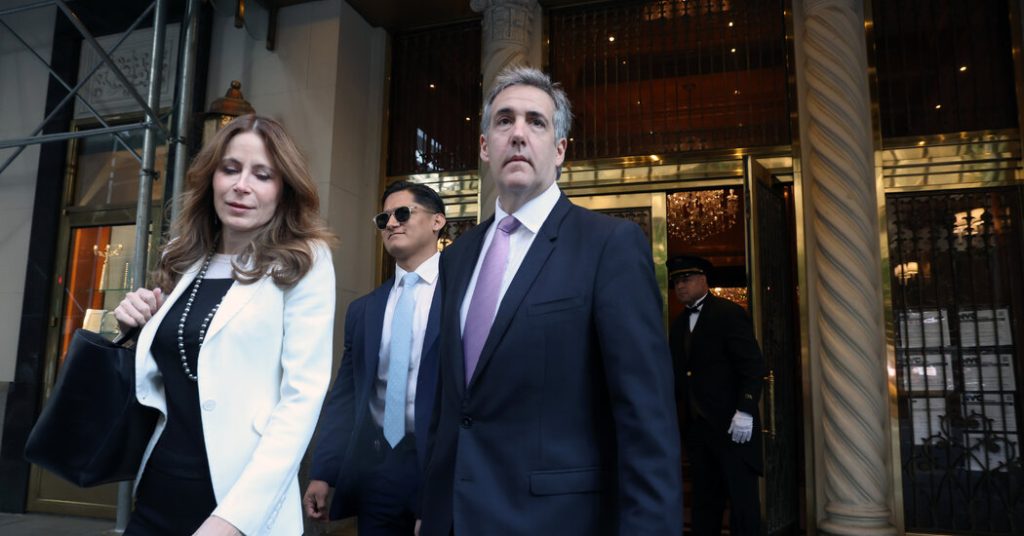The Manhattan district attorney’s office has rested its case against former President Donald J. Trump after 15 days of testimony from 20 witnesses. The case concluded with Michael D. Cohen, Mr. Trump’s former fixer, stepping down from the stand. The defense began its case by attempting to discredit Mr. Cohen, but their second witness, Robert Costello, quickly ran afoul of the judge, Juan M. Merchan. The defense is expected to be brief, with closing arguments scheduled for next week. Mr. Trump, 77, is facing charges related to falsifying business records in connection with a hush-money payment to porn star Stormy Daniels.
The defense called Robert Costello as a witness, who claimed that Mr. Cohen told him in 2018 that Mr. Trump was unaware of the payments to Ms. Daniels. However, Mr. Costello’s conduct on the stand led the judge to reprimand him for lacking decorum. Prosecutors also sought to link a phone call between Mr. Cohen and Mr. Trump’s bodyguard to a photograph taken around the same time. This argument about Mr. Cohen’s testimony could be crucial to his general credibility and the outcome of the case.
Defense lawyers attempted to undermine Mr. Cohen’s credibility, with mixed results. While Mr. Blanche questioned other calls between Mr. Cohen and Mr. Trump, Mr. Cohen remained steadfast in his testimony regarding the hush-money payment. However, Mr. Blanche was successful in getting Mr. Cohen to admit to stealing $30,000 from the Trump Organization, painting the former fixer in a negative light. Despite the aggressive questioning, Mr. Cohen remained composed and steady throughout the proceedings.
The trial, which was initially moving quickly, hit a snag when Justice Merchan announced that closing arguments would be postponed until after the Memorial Day weekend. The defense is expected to rest on Tuesday, and closing arguments will now take place on May 28. This delay provides both sides with additional time to prepare their final arguments and gives jurors ample opportunity to deliberate. The extended break also allows both parties to refine their strategies and ensures that the jury will have the time they need to carefully consider the evidence presented during the trial.


